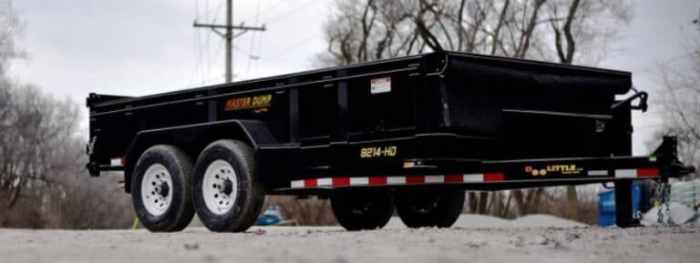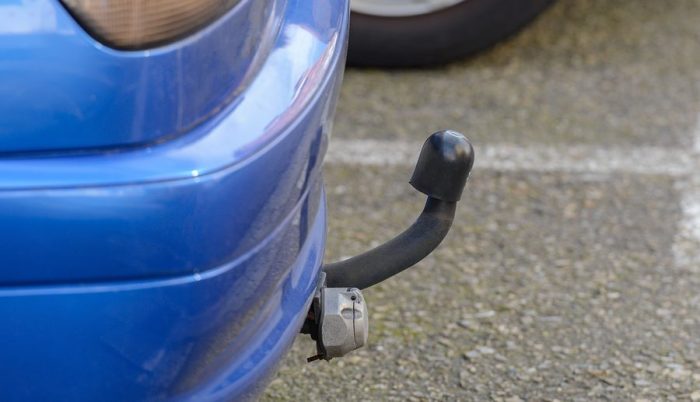When towing a trailer on a 65-MPH-posted highway, meticulous planning and adherence to safety protocols are paramount. This comprehensive guide delves into the critical aspects of towing, empowering drivers with the knowledge and techniques to navigate this demanding task with confidence and competence.
From ensuring proper vehicle and trailer maintenance to understanding the impact of wind and road conditions on towing stability, this guide provides a thorough exploration of the factors that influence safe and efficient towing. It also examines the legal regulations governing trailer towing, including speed limits and the consequences of exceeding them.
Safety Considerations: When Towing A Trailer On A 65-mph-posted Highway

Towing a trailer safely requires meticulous attention to vehicle and trailer maintenance, proper loading techniques, and careful consideration of environmental factors.
Vehicle and Trailer Maintenance
- Regularly inspect the vehicle and trailer for any signs of wear or damage, including tires, brakes, and lights.
- Ensure that the trailer is properly hitched to the vehicle and that all safety chains are securely fastened.
- Check the tire pressure of both the vehicle and trailer before each trip.
Loading and Securing the Trailer
Properly distributing weight within the trailer is crucial for stability. Heavy items should be placed over the axles, and the load should be secured using straps or ropes to prevent shifting.
Impact of Wind and Road Conditions
High winds can significantly affect the stability of a trailer. Reduce speed and maintain a safe distance from other vehicles when encountering strong winds.
Vehicle Performance

Fuel Economy
Towing a trailer increases aerodynamic drag, resulting in reduced fuel efficiency. Estimate the fuel consumption impact based on the trailer weight and size.
Braking Distance and Acceleration
The additional weight of a trailer increases the vehicle’s braking distance. Allow for ample stopping time and adjust driving behavior accordingly.
Selecting a Vehicle with Adequate Towing Capacity
Choose a vehicle with a towing capacity that exceeds the combined weight of the trailer and its load. Refer to the vehicle’s owner’s manual for specific towing capacity guidelines.
Legal Regulations
Speed Limits for Towing Trailers
Adhering to posted speed limits is crucial for safety. In most jurisdictions, the maximum speed limit for towing trailers on highways is typically lower than the general speed limit.
Consequences of Exceeding Speed Limits
Exceeding the posted speed limit while towing a trailer can result in fines, license suspension, or even more severe penalties in the event of an accident.
| Trailer Type | Speed Limit (mph) |
|---|---|
| Single-axle trailer | 55 |
| Tandem-axle trailer | 60 |
| Tri-axle trailer | 65 |
Maneuvering and Control

Low-Speed Maneuvering
Towing a trailer requires precise steering and wide turns. Practice maneuvering at low speeds in a controlled environment before attempting it on public roads.
Safe Following Distance
Maintain a greater following distance than usual when towing a trailer, as it takes longer to stop and maneuver.
Navigating Curves and Hills
Slow down and anticipate curves to avoid trailer sway. When ascending hills, maintain a steady speed and downshift if necessary.
Emergency Situations

Handling Emergencies While Towing
In an emergency, stay calm and assess the situation. Pull over to the side of the road as soon as possible and activate hazard lights.
Safely Pulling Over, When towing a trailer on a 65-mph-posted highway
If possible, pull over to a wide shoulder or rest area. Avoid sudden maneuvers or hard braking, as these can destabilize the trailer.
Tire Blowout or Trailer Detachment
In the event of a tire blowout, maintain control of the vehicle by steering into the skid and applying gentle pressure to the brakes. If the trailer detaches, remain calm and attempt to slow down gradually.
Common Queries
What is the recommended speed limit for towing a trailer on a 65-MPH-posted highway?
For most states, the legal speed limit for towing a trailer on a 65-MPH-posted highway is 55 MPH.
What are the potential consequences of exceeding the posted speed limit while towing a trailer?
Exceeding the posted speed limit while towing a trailer can result in fines, points on your driving record, and increased insurance premiums. In severe cases, it can also lead to accidents.
What are some tips for safely maneuvering a trailer at low speeds?
When maneuvering a trailer at low speeds, it is important to make wide turns, avoid sudden stops and starts, and use your mirrors to monitor the trailer’s position.